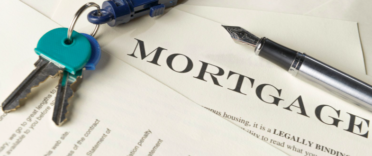
What is bad credit?
Bad credit usually refers to a credit history that traditionally puts off prospective lenders when a hard credit check is performed during the application process. A credit report could be considered 'bad' for a host of reasons, but most commonly it would include a combination of:
- Late payments
- Defaults
- Bankruptcy
- Too many hard searches (what happens when you apply for credit)
- CCJs (County Court Judgements)
- IVAs (Individual Voluntary Arrangements), DROs (Debt Relief Orders) or other insolvency and debt solutions
The effect of having bad credit can be very similar to having no credit, either because you are young or have only recently moved to the UK. The solution to having bad credit or no credit is to build a credit history. One of the best options is to use a credit builder credit card.
Can you borrow money with bad credit?
Even if you have bad credit, there may still be borrowing options open to you. This could be through a company that specialises in products for people with bad credit or through an alternative form of borrowing to what you have applied for in the past.
Keep in mind that you may have to temper your expectations when it comes to how much you will be able to borrow and for how long. The rate of interest you pay will likely also be affected by having bad credit. However, borrowing and repaying money responsibly can improve your credit and allow you to borrow in the future without bad credit hanging over your head.
Credit cards for bad credit
There are specialist providers that offer credit cards designed specifically for people with bad credit. You can use these cards for your everyday spending, then pay off your balance at the end of the billing period. Alternatively, you can spread the cost of a big purchase, though this will usually mean paying interest on what you owe, as 'bad credit' credit cards rarely include 0% purchase periods.
If you can keep your spending within your credit limit and pay off your balance in full at the end of the billing period, it will help fill your credit file with examples of responsible borrowing. After a year or so, this can boost your chances of getting a more useful credit card that pays cashback on your spending, lets you earn rewards, allows you to spread your purchases over many months or enables you transfer an existing credit card balance. Keep in mind that some providers will balance the risk of lending to someone with bad credit by increasing the interest on the card or cutting the credit limit, or both.
You can check your eligibility without needing to fill out a credit card application. This will not affect your credit score and can give you a good idea of what credit card options are available to you.
Compare credit card deals
We’ve teamed up with Creditec
- Find out what credit cards you are eligible for
- This will not affect your credit rating
- 26.5% APR Representative (variable)

Personal loans for bad credit
Personal loans, also called unsecured loans, are often an option for people to borrow money with bad credit, though you should be wary of sky-high interest rates and payday loans. It is a borrowing option that does not require a valuable asset as security to guarantee the debt.
Most personal loans are available over a term of one to five years, though there are options that cover a much shorter period of time. Generally, the shorter the loan term and the lower the loan amount, the higher the rate of interest you can expect to pay, however, this should not be enough to tempt you to borrow more than you need. Limiting yourself to borrowing what you know you can afford to repay is important as this will reduce the risk of your debt spiralling into something you cannot pay back. Missing repayments can damage your credit further, and lead to financial penalties and even bankruptcy.
Secured loans for bad credit
A secured loan differs from a personal or unsecured loan because it requires collateral. This is something of value – usually your home – that can be sold to cover the debt in the event that you cannot pay it back. In most cases, it will require you to have a certain amount of equity in your home so that if it is sold, there is enough money to cover the debt once your mortgage is repaid.
Borrowing against your home is risky because you are putting the roof over your head on the line, but it can allow you to borrow much higher sums than you could with an unsecured loan. It also makes bad credit less of an issue, as your reliability as a borrower is not as important to the lender because you have put up a valuable asset as security.
Guarantor loans for bad credit
Guarantor loans are much more difficult to obtain than personal loans but could be a better option for people with bad credit. They involve a friend or family member – preferably with an excellent credit history – co-signing the loan agreement. This means that should the primary borrower be unable to repay the debt, the guarantor would be liable.
Lenders can be more open to accepting applicants with bad credit if they are guaranteed by someone with excellent credit. However, the guarantor would be taking on considerable liability for little personal gain and could be left with a damaged credit record themselves if the primary borrower misses any payments.
Credit unions
Borrowing from a credit union will only be an option for a very limited number of eligible people. Bad credit shouldn't hinder your ability to borrow through a credit union, but you will likely need to be a member for a significant period of time before you can access financial support. Memberships are usually limited to people who work in a certain field or members of a specific community. There is an online search facility to see if you may be able to join a credit union.
What to do if you are rejected
Being rejected for credit can be frustrating, but you should avoid applying again without trying to correct your bad credit. Credit applications involve a ‘hard’ credit check that will leave a mark on your credit file for future lenders to see. Too many of these marks on your credit report will suggest to lenders that you are struggling for money and may not be a reliable borrower. Hard searches can stay on your file for up to two years, though they are given more weight in the first twelve months.
This all means that you should try to leave a gap between credit applications. This could be anywhere from three to six months, during which time you can try different ways to improve your credit ready for your next application. You should start by checking your credit score. This is a numerical rating of your creditworthiness, based on your credit file. You can check with each of the main credit reference agencies in the UK – Experian, Equifax and TransUnion – for free. Read our article ‘The best way to check your credit score for free’ for more details.
Make sure all the information held by the credit reference agencies is correct and up to date. You should also try the steps in our article ‘How to improve your credit score quickly’, which may seem simple but can have a significant impact on your credit.
If this is not your first time being rejected for a credit card or loan, it is time to think about getting independent debt advice. There are multiple free services to help you get to grips with what you owe and plan your way out of debt. Read our article ‘Where to get free debt advice’ to learn more.






